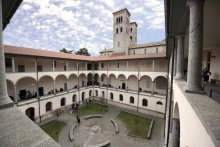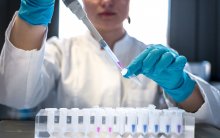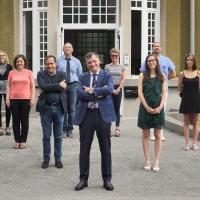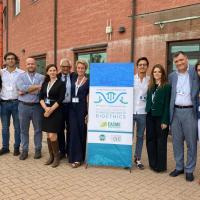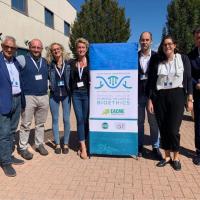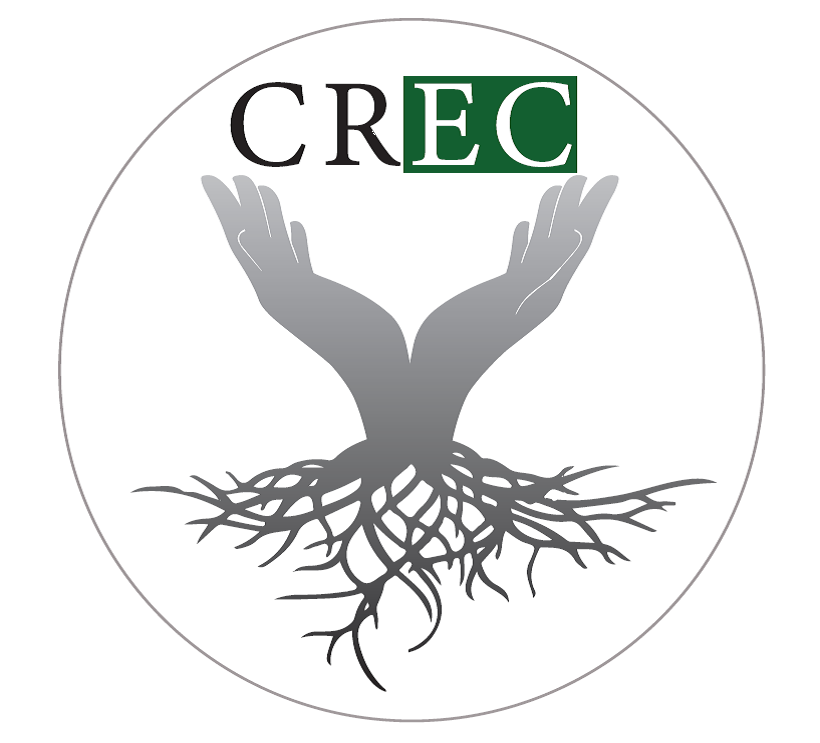
The Research Center for Clinical Ethics (CREC) was born in 2016 at the Department of Biotechnology and Life Sciences of the University of Insubria, Varese (Italy) and over time has become a national reference point for the study of ethical issues, especially in healthcare.
The Center was born from the need to promote the study of bioethics and clinical ethics through research, training and consultancy activities in the university and hospital environment.
Goals:
- Promote and develop Clinical Ethics and Ethical Consultation in the healthcare sector, in order to improve patients’ care.
- Stimulate dialogue and relationship between the subjects involved in care.
- Conduct training, documentation and research activities in collaboration with national and international centers, committing to publish the results.
- Carry out consultancy activities in clinical ethics, research ethics, management ethics in the healthcare field.
Mario Picozzi - Department of Biotechnology and Life Sciences - DBSV
Elena Ferioli - Department of Biotechnology and Life Sciences - DBSV
Anna Maria Arcari - Department of Economics - DIECO
Sergio Balbi - Department of Biotechnology and Life Sciences - DBSV
Giovanni Bernardini - Department of Biotechnology and Life Sciences - DBSV
Jutta Maria Birkhoff - Department of Biotechnology and Life Sciences - DBSV
Paolo Grossi - Department of Medicine and Surgery - DMC
Paolo Severgnini - Department of Biotechnology and Life Sciences - DBSV
Paolo Marino Cattorini
Fabio Banfi
Giulio Corgatelli
Anna Emanuela Costanzo
Silvia Siano
Federico Nicoli
Alessandra Gasparetto
Davide Battisti
Massimiliano Zonza
Abenavoli Alessandra
Arcari Anna Maria
Balbi Sergio
Banfi Fabio
Barile Stefania
Battisti Davide
Battisti Zeno
Benasayag Miguel
Bernardini Giovanni
Birkhoff Jutta Maria
Bissolotti Luciano
Bombelli Raffaella
Bonaccorso Alessia
Bonometti Stefano
Bracale Marcella
Capulli Emma
Cattorini Paolo Marino
Ceruti Silvia
Cilione Marco
Conti Adelaide
Corgatelli Giulio
Costanzo Anna Emanuela
Dahò Margherita
Dalla Gasperina Daniela
De Battisti Zeno
Del Vecchio Mario
Di Bella Roberto
Esquirol Josef Maria
Ferioli Elena
Ferrari Marco
Ferrario Omar
Filippini Aurelio
Fray Paulo
Gasparetto Alessandra
Grossi Paolo
Grossi Alessandra
Latronico Nicola
Macchi Barbara
Maggiani Alberto
Marchetti Valter
Mazzagatti Roberto
Merlano Gianluca
Montaguti Elena
Nespoli Antonella
Nicoli Federico
Nuti Sabina
Oblatore Lucia
Paganini Massimiliano
Parati Eugenio
Pellegrini Edda
Passaro Elvira
Picozzi Mario
Piffer Istvan
Pistoni Anna
Prisco Ada
Proserpio Tullio
Reato Francesca
Rimedio Antonio
Riva Michele
Robone Silvana
Roggi Sara
Santangelo Elio
Sattin Davide
Sepe Margherita
Severgnini Paolo
Siano Silvia
Talamona Adele
Testa Jacopo
Vannini Candida
Viganò Vittoria
Zonza Massimiliano
For information on how to join the Center, write to crec.secretary@uninsubria.it
“Core Competencies for Health Care Ethics Consultants, 3rd Edition: Developments and Perspectives”
📅 Date: February 4, 2026
🕔 Time: 17:00 – 18:30 CET (Rome, Italy)
🌍 Language: English
💻 Format: Online webinar
The webinar will open with an introduction by Prof. Mario Picozzi, Director of the Research Center for Clinical Ethics, and will feature a lecture by Prof. Mark Aulisio, Susan E. Watson Professor and Chair of the Department of Bioethics at the School of Medicine, Case Western Reserve University (Cleveland).
The session will conclude with a Q&A discussion, offering participants the opportunity to engage directly with the speaker on recent developments and perspectives related to the third edition of the Core Competencies for Health Care Ethics Consultants.


The document of the Ministry of Economic Development "National Strategy for Artificial Intelligence" has as its incipit (Guiding Principles) the following statement:
The objective of the National Strategy is to outline a coherent plan to allow Italy to maximize the benefits and minimize the costs deriving from the most important technological paradigm shift of our times. AI must be at the service of people, ensuring human supervision, preventing the risks of exacerbating social and territorial imbalances potentially deriving from its unconscious or inappropriate use. AI must be designed and implemented in a reliable and transparent way, for its conscious acceptability and intrinsic robustness so that it can be adopted in any production environment and capable of responding to the social challenges of our country.
In summary, the introduction of AI must be inspired by three principles: anthropocentrism, reliability and sustainability.
The seven priority sectors mentioned in the document include that relating to "Health and well-being" with specific reference to the contribution that new technologies can make in areas such as genomics, diagnostic imaging, the development of new drugs and vaccines , tracking and care of people, support for diagnosis and prognosis.
In light of these statements, CREC proposes to set up a working group with a focus on cognitive sciences, artificial intelligence and the ethics of new technologies.
Some aims are:
- Study of the functioning of natural and artificial minds
- Study of the functioning of artificial intelligence
- Human - machine integration
- Study and implementation of an ethics inherent in new technologies
- Training of healthcare personnel about decision-making processes, decision making, problem solving, the ethics of new technologies
Who we are:
Roberto di Bella
Massimiliano Paganini
Silvia Siano
Elena Ferioli
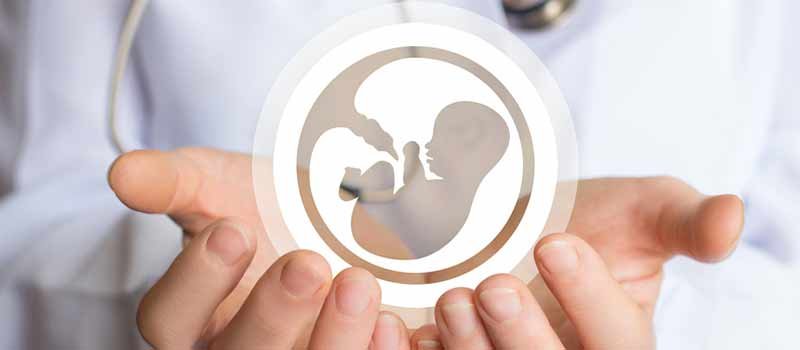
For years, CREC has been dealing with beginning of life moral issues that occupy a prominent place in the bioethical debate, as scientific and technological development has also profoundly changed the way people come into the world.
The beginning of life issues that are most widely addressed by our research include:
- The moral relevance with regard to the use of cryopreserved embryos no longer used for reproductive purposes and the creation of embryos for research.
- The debate on the moral legitimacy of the interventions that in the future could be carried out on embryos not for therapeutic purposes, but for improvement, that is, aimed at the enhancement of physical and cognitive abilities and not simply at the prevention of diseases.
- The impact of the most current reproductive biotechnologies on the birth process (cloning; ectogenesis; artificial gametes).
- The important issues that arise from the ability of health workers to keep alive or, in any case, resuscitate newborns with an increasingly lower gestational age. They concern the results that can be expected in terms of survival and quality of life, the suffering imposed on young patients, the damage that resuscitation practices can cause and, above all, whether acting for survival, even for a short time, is always the best solution, and who has to decide.
- Finally, the discussion around the treatment of brain-dead pregnant women, kept connected to machines to allow the fetuses in their womb to reach an adequate stage of development, is not extensive, but no less relevant.
Who we are:
Elena Ferioli
Alessia Bonaccorso
Silvia Siano
Vittoria Viganò
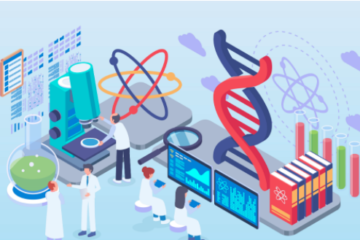
The request to establish biobanks today becomes more and more urgent. A biobank is a facility where biological material and biomedical data related to the sample, which can come from both patients and citizens, are collected for a long time.
Actually it is recognized the important role of biobanks in acquiring new knowledge and encouraging new diagnostic and treatments, on the other hand it is also necessary to reflect on the delicate and complex legal and ethical issues underlying them.
Therefore, from a good practice perspective, CREC experts address the most current challenges and criticalities of advanced research and biobanking and their related ethical, legal and social issues (informed consent; ownership; data confidentiality; return of results; genetic information).
Actually we design a Biobank as a research infrastructure with an appropriate Ethical Framework and responsible for the custody of biospecimens and data according to a model of Charitable Trust. So to answer certain questions is crucial: How could biobank respect the trust placed in it? What resources could promote the goals of the biobank? Do professionals require a specific ethical training?
This credit of trust must be fed and confirmed by the ethical choices of the biobank and ensuring maximum transparency and traceability of decisions. The aim of a Biobank is to become an ethical subject to secure the public trust and to define the ethics criteria to be made public and to which the biobank will comply. In our model we purpose the prospective involved parties that could guarantee the achievement of this goal: Informed Consent, Charter of Principles and Biobank Ethics Consultation Services (BECS).
Our purpose is to offer a Charter of Principles and BECS to help scientists, health care professionals, patients, donors/participants, institutional review board and policymakers, better navigate the ethical issues in biobanking. An exploratory survey to identify the willingness to use BECS represent our future research plan.
Who we are:
Elena Ferioli

Healthcare Ethics Consultation is "a service performed by an individual or group to answer questions posed by patients, family members, guardians, health professionals or other persons involved in care, regarding uncertainties or conflicts between values that arise in the clinical practice "(The Report of the American Society for Bioethics and Humanities, Core competencies for Healthcare Ethics Consultation, 2nd ed., 2011).
The goal of CREC is to establish a Healthcare Ethics Consultation service to contribute to the improvement of patient care, both in terms of methods and results, through the identification, analysis and resolution of ethical problems.
Clinical ethics consultation should be integrated into a bioethics Service with a single ethics counselor or small team. This Service would ensure continuity and sustainability of the activities concerning, in addition to ethical advice in the various areas, the training of operators, support for the ethics committees, research in the bioethical field, the development of ethics in the health institution.
Goals:
- Promote and develop Clinical Ethics and Ethical Consultation in the healthcare sector, in order to improve patients’ care.
- Stimulate dialogue and relationship between the subjects involved in care.
- Carry out consultancy activities in clinical ethics, research ethics, and management ethics in the healthcare field.
Who we are:
Mario Picozzi
Federico Nicoli
Silvia Ceruti
Elena Ferioli

Until a few decades ago, the rhythms and cadences of life, from its beginning to its end, were essentially dictated by nature which ran its course with limited interventions by man. With the progress of life sciences, biology and medicine, with the spread of life-sustaining therapies (such as mechanical ventilators, dialysis, artificial nutrition and hydration), it has come to be able to influence the course of existence more and more, shifting the ultimate limit in quantitative and qualitative terms.
In Italy there are still lively and heated debates and reflections on death as a "choice of life", as opposed to the progressive evolutions of science and technology, which instead make it possible to artificially prolong human survival, very often even against the will of the same patient or his closest relatives.
The theme of the end of life involves highly topical issues in our country. Even the legislator is wondering how to regulate this delicate phase of life, in the light of the different sensitivities present in public opinion.
Fields of study and updating by CREC are:
- Euthanasia and assisted suicide
- Recent dilemmas and case studies
- Palliative care
- Ethical and spiritual issues
Who we are:
Mario Picozzi
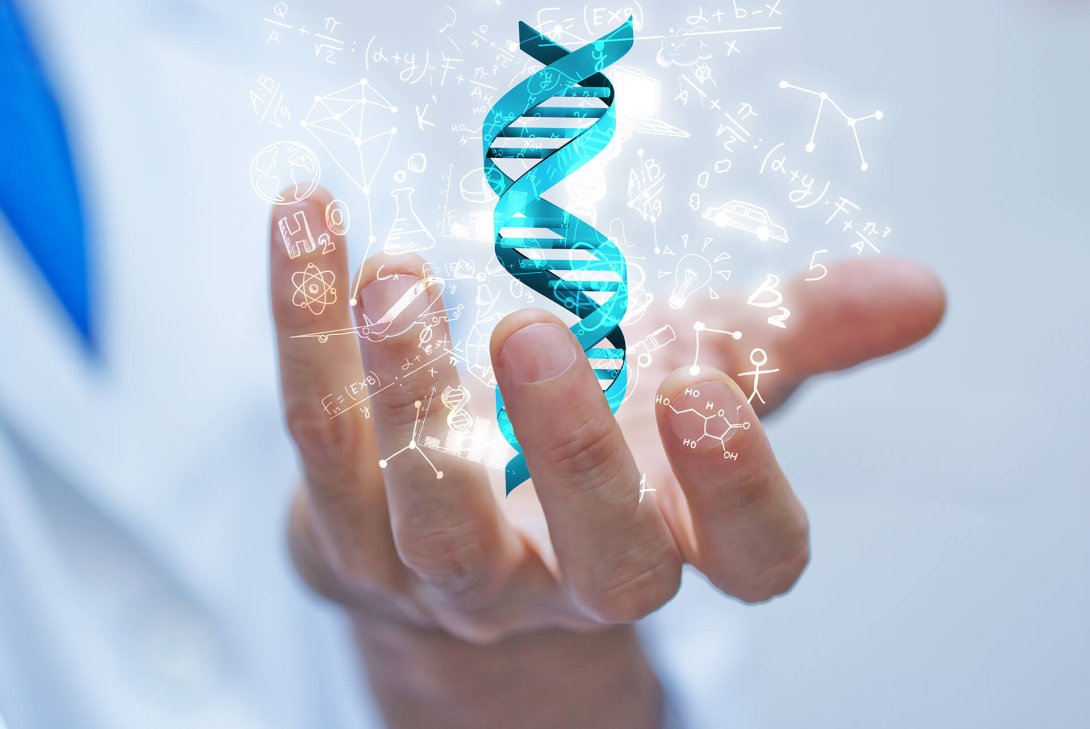
The advent of genetics and its applications is the most profound medical, biological and social revolution left us as a legacy from the twentieth century. Diagnostic tests, genome modifications of entire generations, the possibility not only to cure individuals, but to enhance human capacities are only the surface of a change that affects an increasing number of daily practices and important cultural challenges that ethics cannot underestimate.
CREC research aims at studying the main theoretical problems raised by genetics and its applications: the notion of beneficence, the idea of freedom and justice, the principles of precaution and responsibility (GenEthics).
In particular, the experts investigate the practices already operating in contemporary medicine from a biotechnological, genetic and bioethical point of view:
- Technologies of genetic diagnostics and medical genetics
- Predictive Medicine and genetic testing
- Biotechnologies and genetic modifications
- Human Genome Editing
- Human Enhancement and genetic doping
- Pharmacogenetics and pharmacogenomics
Who we are:
Elena Ferioli
Marco Ferrari

The terms integrative medicine and complementary and alternative health and medicine encompass curative approaches and therapies that have historically not been included in conventional traditional Western medicine.
A substantial body of information on complementary and alternative medicine is available in peer-reviewed publications, evidence-based reviews, consensus expert panel papers and authoritative textbooks. Many complementary and alternative medicine therapies have been studied and found to be effective and / or comparable to conventional treatment, while some have been found to be ineffective or subject to contradictory and inconsistent results.
Integrative medicine aims to combine complementary and alternative medicine with traditional medicine, where appropriate.
Patients do not always voluntarily inform doctors about their use of these therapies.
Therefore, the research is particularly interested in the topic of the doctor-patient relationship in reference to the use of complementary medicines.
Who we are:
Raffaella Bombelli
Elena Ferioli
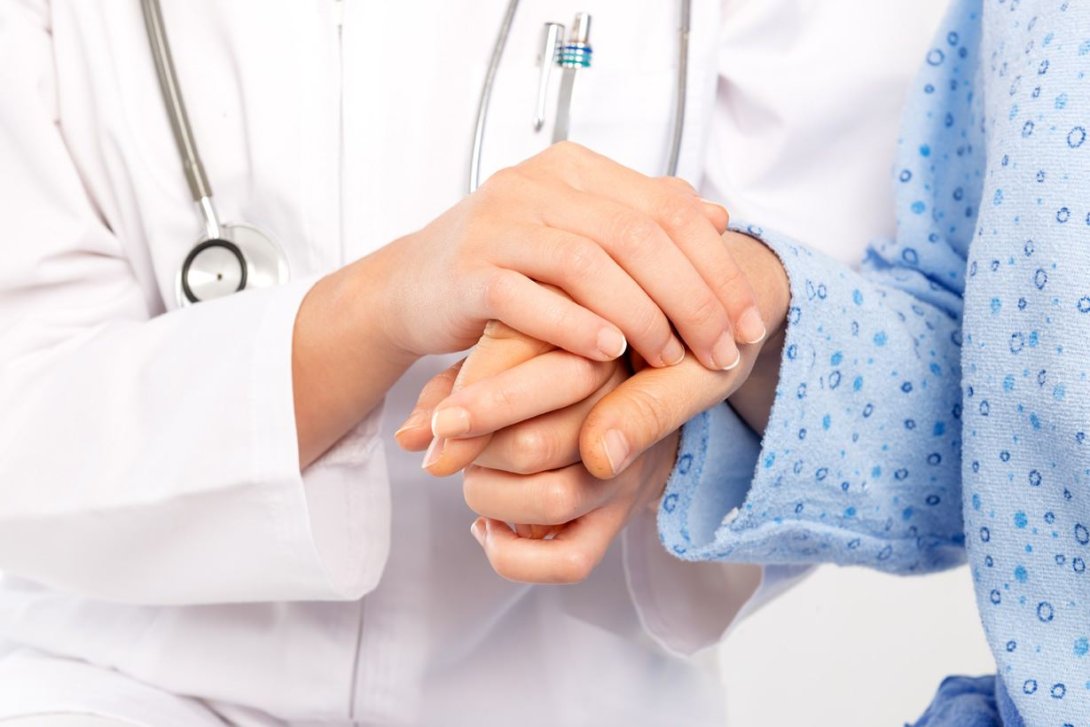
On January 31, 2018, Law no. 219 of 22/12/2017 "Rules on informed consent and advance healthcare directives" came into effect. This law aims to regulate the delicate issues of consent to health treatments (the so-called informed consent), the shared planning of care and the choices related to the final phase of life (the so-called Advance Treatment Directives or DAT, known as a living will or bioassay). This Law deals with various issues, defends the right to life, health, dignity and protects self-determination, that is, the right of each person to be able to make free and informed choices about their own life and health.
Who we are:
Mario Picozzi
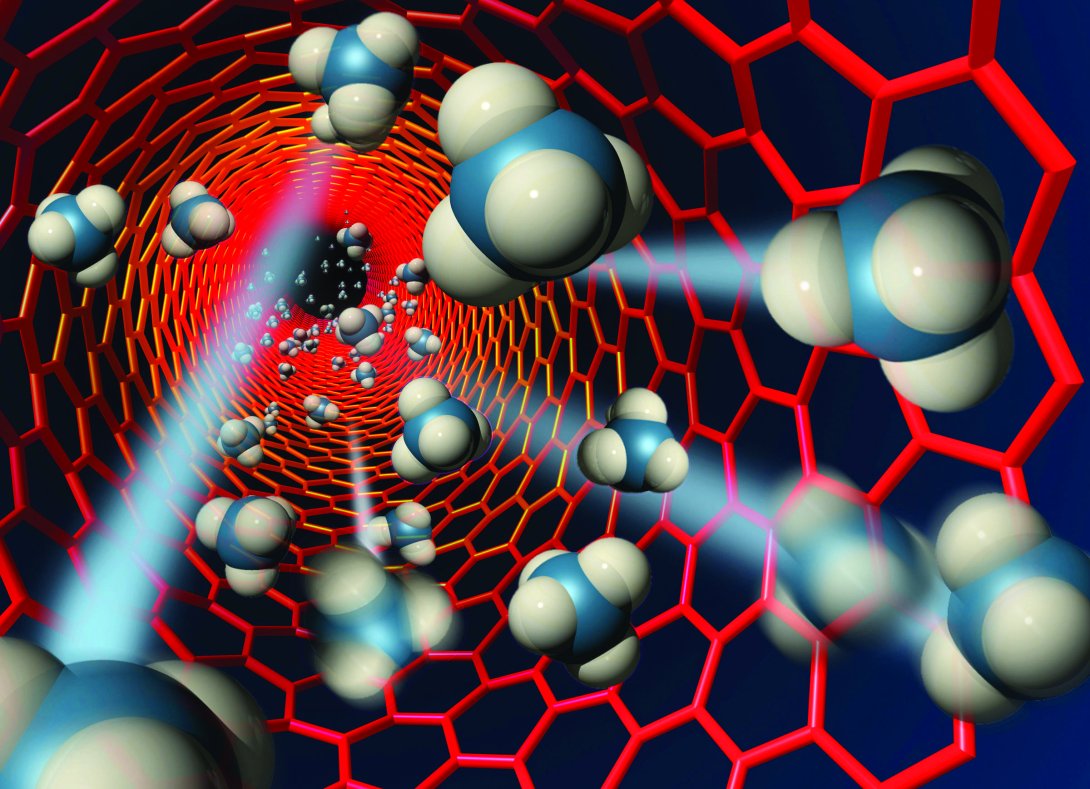
Nanotechnologies, i.e. the possibility of using the characteristics of the atomic-molecular size (between 1 and 100 nm) - and therefore the characteristics of the relationships between atoms - to build materials and products with specific properties related to the size, have now fully entered title in public debates, but even more have managed in a short time to enter every sector of human life, ranging from computer sciences, to engineering, up to medical sciences.
The current panorama of nanotechnologies appears quite jagged with profound repercussions in the identification and evaluation of the bioethical problems of these technologies.
CREC expertise are aimed specifically at the study of Nanomedicine and the analysis of potential risks and implications from a biological, medical and ethical-social point of view and therefore the center tries to understand how medicine today can combine science, humanity, new technology and ethics.
Our main research fields are:
- The potential of nanotechnology innovations in medicine to cure diseases
- The potential health risks posed by exposure to nanomaterials
- Social problems - the effects that the availability of nanotechnology equipment will have on human health and interaction
- The need for regulation
Who we are:
Vittoria Viganò
Elena Ferioli
Giovanni Bernardini

NeuroEthics is a young and still fluid disciplinary field born from the extraordinary development of cognitive neuroscience and their potential theoretical and practical repercussions, at an ethical, legal, social and political level.
The interdisciplinary character makes NeuroEthics a space of intersection between various fields of knowledge - philosophy, psychology, law, aesthetics, medicine and genetics - such as to make it naturally destined for a collaboration between researchers of different approaches, with the desire to arrive at a better understanding of the human being.
Who we are:
Davide Sattin
Marta Vassallo
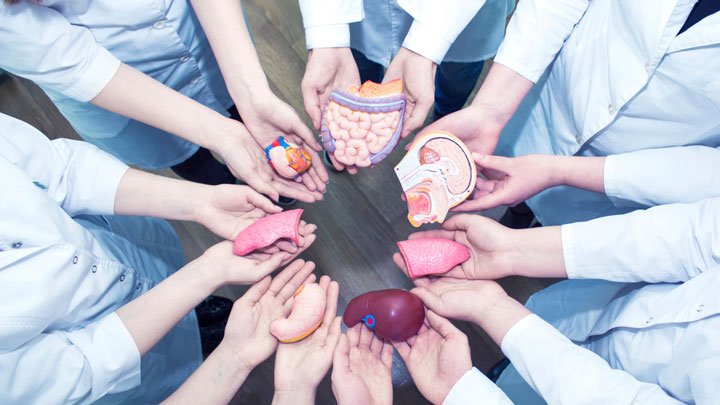
Thanks to the progress of modern medicine and the presence of an increasingly efficient organizational network, today transplantation is a routine intervention capable of saving thousands of lives every year. Transplantation is used when severe organ failure or a serious blood disease cannot be cured with other medical treatments.
The ethics of transplants is at the center of a bundle of anthropological, ethical and legal, medical and political issues. The transplant reflects the idea of the person, the respect due to the dead, the responsibilities of families, the voluntary nature of the donation and the consent to the same, the definition of death, the development of surgical techniques, the role of the state in regulating the sphere public health promotion and those relating to citizens' choices. These are just some of the knots that arise every time the topic of transplants is faced in our research center.
Who we are:
Mario Picozzi
Paolo Grossi
Alessandra Grossi
Federico Nicoli

Osteopathy is a consolidated health care system that is based on manual contact for the assessment, diagnosis and treatment of the person. It is a manual therapy, complementary to classical medicine, focused on the health of the person rather than on the disease.
Osteopathy, or Osteopathic Medicine, was born in the late nineteenth century in the United States of America and spread in the early twentieth century in Europe, particularly in France and England, where it has long been an established medicine. The term "Osteopathy" was coined by its founder, the American surgeon Dr Andrew Taylor Still, who at the end of the nineteenth century discovered the relationship between the functional balance of all body structures and health. Still's innovation is reflected in the key principles that osteopathy still uses today:
- The human being is a dynamic unit of functions, whose state of health is determined by body, mind, and spirit
- The body has self-regulation and self-healing mechanisms
- Structure and function are mutually interrelated
- Rational therapy is based on the application of all three principles
CREC has been collaborating and interacting for years with the Italian Academy of Osteopathy Medicine (AIMO, Saronno) which today is the only school of osteopathy validated by the prestigious University College of Osteopathy (UCO) based in London and created in 1917 by a direct pupil of Andrew Taylor Still. UCO is the first osteopathy university established in Europe and is recognized as one of the most prestigious and valid osteopathic institutions in the world.
Osteopathic medicine has recently been recognized by Law in March 2018 and regulated as a health profession in Italy. The Italian osteopathic professional profile was established in order to avoid overlapping the scope of practice with existing health professions (i.e., physiotherapists) and/or their specializations (i.e., manual therapy). The Italian law recognizes osteopaths as separate health professionals for interventions concerning prevention and maintenance of health through osteopathic treatment of somatic dysfunctions within the musculoskeletal system.
CREC, aiming to increase high quality and ethical research, has promoted the formation of an Ethics Review Committee composed according to interdisciplinary and independent criteria at AIMO. The Committee expresses opinions on research projects and promotes the development of ethical awareness, referring to national, EU and international legal regulations and to the recommendations of the National Bioethics Committee.
Furthermore, CREC’s researches improve knowledge and ethical approaches in clinical practice and in osteopathic experimentation (informed consent, professional secrecy, confidentiality, medical records, code of ethics, research integrity).
Who we are:
Elena Ferioli
Alessandra Abenavoli
Alberto Maggiani

- Accademia Italiana di Medicina Osteopatica (AIMO), Saronno
- European Association of Centers of Medical Ethics (EACME)
- Fondazione Lanza, Padova
- Gruppo Interdisciplinare per la Bioetica clinica e la consulenza etica in ambito sanitario (GIBCE)
- Istituto di Bioetica e Medical Humanities (IBioMedH), Università Cattolica Sacro Cuore, Roma
- Nord Italia Transplant Program
The Third Mission activities carried out by CREC have very strong interactions with the social, health and economic realities present in the Insubria territory.
These virtuous and profitable synergies - of high cultural, scientific and popular value - are aimed not only at professionals, but also at students, a non-academic public and, in general, citizens.
Secondary school students
CREC, through specific projects, organizes training courses aimed at raising awareness in young people in understanding the ethical implications related to the scientific and technological development of the postmodern pluralist society, with particular reference to biomedical issues related to biomedicine.
The courses allow students to raise awareness of the main bioethical and clinical ethics issues that influence current and future society, providing them with the appropriate thinking tools to be able to formulate and consciously support their own ethical position in the direct exercise of health practice on issues concerning medicine, health and life.
Citizens
CREC pays particular attention to sensitization and information through the organization of events and conferences addressed to citizens.
- Sirignano P, Piffaretti G, Ceruti S, Orso M, Picozzi M, Ricci G, Sirignano A, Taurino M. Insight from an Italian Delphi Consensus on EVAR feasibility outside the instruction for use – The SAFE EVAR Study (SAfety and FEasibility of standard EVAR outside the instruction for use). Journal of Cardiovascular Surgery, 2024 Feb 6. doi: 10.23736/S0021-9509.23.12906-5. Epub ahead of print. PMID: 38319647.
- Grossi AA, Butti G, DE Min F, Donato MA, Aurelio MT, Carcano G, De Feo TM, Maffioli L, Picozzi M, Piccolo G, Cabrini L. Family members' long-term perspectives on organ donation conversations: a pilot study of quality assessments. Minerva Anestesiol. 2024 Jan-Feb;90(1-2):101-103. doi: 10.23736/S0375-9393.23.17626-7.
- Parma C, Doria F, Zulueta A, Boscarino M, Giani L, Lunetta C, Parati EA, Picozzi M, Sattin D. Does Body Memory Exist? A Review of Models, Approaches and Recent Findings Useful for Neurorehabilitation. Brain Sci. 2024 May 25;14(6):542.
- Parma C, Doria F, Zulueta A, Lanzone J, Boscarino M, Giani L, Lunetta C, Vassallo M, Parati EA, Picozzi M, Sattin D. An Overview of the Bodily Awareness Representation and Interoception: Insights and Progress in the Field of Neurorehabilitation Research. Brain Sci. 2024 Apr 16;14(4):386. doi: 10.3390/brainsci14040386. PMID: 38672035
- Van Overdijk PAH, Grossi AA, van Delft CH, Jansen NE, van den Hoogen MWF, Paredes-Zapata D. Disparities in kidney transplantation accessibility among immigrant populations in Europe: A systematic review and meta-analysis. Transplant Rev (Orlando). 2024 Jan;38(1):100814. doi: 10.1016/j.trre.2023.100814.
- Picozzi M, Ceruti S, Ferioli E, Grossi AA, Nicoli F, Cattorini PM. Comitati etici per la pratica clinica e servizi di etica clinica. Una proposta operativa per l’Italia. Medicina e Morale, 2023, 3: 251:265.
- Grossi AA, Puoti F, Masiero L, Troni A, Cianchi T, Maggiore U, Cardillo M. Inequities in organ donation and transplantation among immigrant populations in Italy: a narrative review of evidence, gaps in research and potential areas for intervention. Transpl Int. Published online 2023. doi:10.3389/ti.2023.11216.
- Grossi AA, Randhawa G, Jansen N, Paredes D. Taking a care pathway/whole systems approach to Equality Diversity Inclusion (EDI) in organ donation and transplantation in relation to the needs of ‘ethnic/minority/migrant’ communities: a statement and a call for action. Transpl Int. 2023; 36. doi:10.3389/ti.2023.11310.
- Grossi AA, Sever MS, Hellemans R, Mariat C, Crespo M, Watschinger B, Peruzzi L, Demir E, Velioglu A, Gandolfini I, Oniscu GC, Hilbrands L, Mjoen G. The 3-Step Model of informed consent for living kidney donation: a proposal on behalf of the Working Group DESCARTES of the European Renal Association. Nephrol Dial Transplant. 2023 Jun 30;38(7):1613-1622. doi: 10.1093/ndt/gfad022.
- Grossi AA, Paredes D, Palaniswami V, Jansen N, Picozzi M, Randhawa G. ‘One size does not fit all’ in organ donation and transplantation: targeting and tailoring communication for migrant and ethnic minority populations. Communication & Medicine. 2023.
- Grossi AA, Puoti F, Maggiore U, Cardillo M. Refusal Rates to Organ Donation in Intensive Care Units Among Immigrant Populations in Italy. Transpl Int. 2023 Sep 7;36:11674. doi: 10.3389/ti.2023.11674.
- Grossi AA, Caselli I, Nicoli F, Ceruti S, Testa J, Tantardini C, Callegari C, Picozzi M. Improving equity in the kidney transplant continuum for non-european-born patients: preliminary findings of the contribution of ethical assessments to pre-transplant evaluations. Medicina e Morale, 2023, 4: 391-415.
- Nicoli F, Grossi AA, Testa J, Picozzi M. The Circle Method: A Novel Approach to Clinical Ethics Consultation. J Clin Ethics. 2023 Spring; 34(1):79-91. doi: 10.1086/723428.
- Greco F, Ceruti S, Martini S, Picozzi M, Cosentino M, Mario F. Educating and Training in Research Integrity (RI): A Study on the Perceptions and Experiences of Early Career Researchers Attending an Institutional RI Course. Journal of Academic Ethics, 2023. https://doi.org/10.1007/s10805-023-09497-1.
- Sattin D, Parma C, Lunetta C, Zulueta A, Lanzone J, Giani L, Vassallo M, Picozzi M, Parati EA. An Overview of the Body Schema and Body Image: Theoretical Models, Methodological Settings and Pitfalls for Rehabilitation of Persons with Neurological Disorders. Brain Sci. 2023 Oct 4;13(10):1410. doi: 10.3390/brainsci13101410.
- Ravn T, Sørensen MP, Capulli E, Kavouras P, Pegoraro R, Picozzi M, Saugstrup LI, Spyrakou E, Stavridi V. Public perceptions and expectations: Disentangling the hope and hype of organoid research. Stem Cell Reports. 2023 Apr 11;18(4):841-852. doi: 10.1016/j.stemcr.2023.03.003.
- Federico Nicoli, Elena Ferioli, Alessandra A. Grossi, Mario Picozzi. Enhancing dialogue to bridge the gaps in Bioethics - Abstract Book. EACME Annual Conference 2022 - Varese, 15-17 September 2022. Medicina Historica -Studies in History, Paleopathology, Bioethics and Anthropology of Health - Vol. 6 - Supplement N. 2 - November 2022 | ISSN 2532-2370
- Ferioli Elena. Ethics in Osteopathic practice and research: the proposal for an Ethical Framework. Medicina Historica 2022; Vol. 6, N. 1: e2022012
- Ceruti S, Cosentino M, Picozzi M. How to continue COVID-19 vaccine clinical trials? The ethics of vaccine research in a time of pandemic. Clinical Ethics; 2022 Mar; 17(1):32-40.
- Passaro E. (2022), Una crudeltà consacrata all’uso. Le passioni di Cesare Beccaria tra retorica, diritto e calcolo, in B. Capaci, C. Festa, P. Licheri, E. Passaro (a cura di) Trappole per topoi La retorica che non ti aspetti e le prove della persuasione, Città di Castello (PG), I libri di Emil, pp. 87-111. Collana: RETORICA ARGOMENTAZIONE LINGUISTICA collana diretta da Bruno Capaci e Paola Desideri.
- Capulli Emma, Gli atti di autodeterminazione del corpo in ambito biomedico. Sulla genesi e l’ambito di operatività del principio di gratuità. In Rivista di Medicina Legale, 2022, Volume 1.
- Rasori Giovanni. Vaccination in the 19th century in Italy and the role of the catholic church in public health: a historical overview. Journal of preventive medicine and hygiene, 2022, 63(1), pp. E104–E108.
- Grossi AA, Nicoli F, Cardillo M, et al. Transplantation from active COVID-19 donors: an ethical analysis of the Italian national protocol. Transpl Infect Dis. 2022. doi: 10.1111/tid.13846.
- Grossi AA, Puoti F, Fiaschetti P, Di Ciaccio P, Maggiore U, Cardillo M. Kidney transplantation and withdrawal rates among waitlisted first-generation immigrants in Italy. Eur J Public Health. 2022. doi: 10.1093/eurpub/ckac027
- Nicoli F, Grossi AA, Testa J, Picozzi M. The Circle Method: A Novel Approach to Clinical Ethics Consultation. J Clin Ethics. 2022 (in press)
- Ferioli E. A serviceable Research Biobank model: Charter of Principles and Biobank Ethics Consultation Service (BECS) as a formal toolkit to promote an expert ethical guidance to biobank research. Medicina e Morale, vol.1; p. 35-53, 2021.
- Nicoli F, Montaguti E, Gasparetto A, Zaninetta G, Grossi AA, Mangeri G, Miccinesi G, Petrini C, Picozzi M. The Act of Consoling Helps Those Who Console: A Multicenter Observational Survey Study in Hospice Services. Palliat Med. 2021 Aug; 24(8): 1226-1231.
- Antonio Rimedio. Decisioni di triage per l’accesso alla terapia intensiva: prospettive etiche (Editoriale). Decidere in medicina, 2021, 21, 2:3-9.
- Davide Sattin , Francesca Giulia Magnani , Laura Bartesaghi, Milena Caputo, Andrea Veronica Fittipaldo, Martina Cacciatore, Mario Picozzi, Matilde Leonardi. Theoretical Models of Consciousness: A Scoping Review. Brain Sci. 2021 Apr 24; 11(5): 535.
- Testa J, Pizzi MG, Cocco N, Marchese V, Sabbatini F. HIV and migrants: Challanges and needs for an inclusive helath system. JHA 2021; 6(1): 7-9.
- Gruppo di Lavoro di Bioetica COVID-19. Assistenza sociosanitaria residenziale agli anziani non autosufficienti: profili bioetici e biogiuridici. Rapporto ISS COVID-19, n.6/2021.
- Gruppo di Lavoro di Bioetica COVID-19. Aspetti di etica nella sperimentazione di vaccini anti-COVID-19. Rapporto ISS COVID-19, n.3/2021.
- F Nicoli, G. Floridia, I. Grattagliano, D. Greco, P. Muzzetto, C. Petrini. Vulnerability and ethical issues faced by General Practitioners during the pandemic in Italy: some reflections and lessons learned. J of Prim Health Care, 2021;13(2):102–105.
- Grossi AA, Nicoli F, De Feo TM, et al. The 3T Model of Informed Consent for Non-Standard Risk Donors: a Proposal for Transplant Clinical Practice. Transplant Direct. 2021; Oct 22;7(11):e782.
- Grossi AA, De Feo TM, Ambrosini A, Picozzi M. Shared decision-making and adverse events: critical aspects for the quality and safety of kidney transplant practice. Journal of Nephrology. 2021 Nov 16. doi: 10.1007/s40620-021-01202-y
- Grossi AA, Cardillo M. Il progetto ME TOO (Migrant and Ethnic minority Education on Transplantation and Organ donation and process Optimization). Trapianti. 2021;25(3):73-85. doi 10.1709/3687.36736
- Passaro E., Picozzi, M. (2021). The persuasion of vaccine allocation models during Covid-19. Rhetoric, ethics and scienceT, «Medicina E Morale», 70(4), 447-468.
- G. Gambarelli, Passaro E. (2021), Il Paziente Impaziente. Le Strutture Retoriche dell’attesa nel Dialogo Medico-Paziente, «DNA – Di Nulla Academia» 2 (1), Bologna, pp. 41-66.
- E. Passaro (2021), Il paradosso del the last bed dilemma: il triage tra analisi retorico-argomentativa e giustificazione etica, in S. Scioli (a cura di), Le medical humanities al tempo del Covid-19: temi, problemi, prospettive, Città di Castello (PG), I libri di Emil, pp. 73-84. Collana: Collana del Centro Studi MEDICAL HUMANITIES Fondata da Marco Veglia.
- Capulli Emma, Gestazione per altri in Messico: ricostruzione, ratio e problematiche degli attuali scenari normativi. In Nomos: le attualità nel diritto, 2021, Volume 3.
- Capulli Emma, Angela Balzano’s Per farla finita con la famiglia: from abortion to posthuman kin. In Soft Power, luglio-dicembre 2021, Volume 9, numero 2, 99. 321-325.
- Gruppo di Lavoro di Bioetica COVID-19. Il Medico di Medicina Generale e la pandemia di COVID-19: alcuni aspetti di etica e di organizzazione. Rapporto ISS COVID-19, n.35/2020.
- Nicoli, A. Gasparetto. Italy in a Time of Emergency and Scarce Resources: The Need for Embedding Ethical Reflection in Social and Clinical Settings. Journal of Clinical Ethics 2020; 31(1); 92-94.
- Roggi S, Picozzi M. Is Left Ventricular Assist Device Deactivation Ethically Acceptable? A Study on the Euthanasia Debate. HEC Forum, 2021 Dec; 33(4): 325-343.
- Picozzi M, Gasparetto A. Clinical ethics consultation in the intensive care unitC. Minerva Anestesiol, 2020 Jun; 86(6): 670-677.
- Gasparetto A. L’etica clinica nelle realtà sanitarie italiane: status quaestionis e prospettive, in L. Alici, F. Miano (a cura di), L’etica nel futuro, Orthotes Editrice, Napoli-Salerno 2020, pp. 465-475.
- Gasparetto A., Picozzi M. Il Servizio di etica clinica: cura di fine vita e trapianti d’organo. Trapianti 2020; 2: 38-43.
- Roggi S, Picozzi M. La phrônésis ricoeuriana: una rilettura di futilità e proporzionalità nei casi di fine vita. Medicina e Morale, 2020/2: 213-227.
- Ceruti S., Picozzi M. La responsabilità giuridica nella Consulenza Etica in Ambito Sanitario. Medicina e Morale 2020; 69(3): 371-389.
- Spagnolo A.G., Ceruti S. Le sperimentazioni farmacologiche e i comitati etici, in Caputo M., Oliva A. (a cura), Itinerari di medicina legale e delle responsabilità in campo sanitario, Torino: Giappichelli; 2020: 328-338.
- A. Rimedio. Principi di etica pubblica per l’allocazione dei vaccini anti COVID-19: il ruolo dei medici (Editoriale). Decidere in medicina, 2020, 20; 6: 3-8.
- A. Rimedio. Criteri di priorità per l’allocazione di risorse sanitarie scarse nel corso della pandemia da CoViD-19. BioLaw Journal – Rivista di BioDiritto, 2021, 1: 13-38.
- A. Rimedio. Vulnerable Population in Covid-19 Outbreak: A Look at Italy. American Journal of Health Research. 2020, 8, 3:42-48.
- A. Rimedio. La “procedura medicalizzata” dell’aiuto al suicidio nella sentenza n. 242/2019 della Corte Costituzionale. Rivista Italiana di Cure Palliative, 2020; 22: 248-255.
- A. Rimedio. “Eccezione” di aiuto al suicidio? Osservazioni critiche sulla sentenza n. 242/2019 della Corte costituzionale. BioLaw Journal – Rivista di BioDiritto, 2020, 1: 65-80.
- D. Sattin, M. Leonardi, M. Picozzi. The autonomic nervous system and the brainstem: A fundamental role or the background actors for consciousness generation? Hypothesis, evidence, and future directions for rehabilitation and theoretical approaches. Brain Behav, 2020 Jan; 10(1): e01474.
- M. Picozzi, P. Severgnini. The contribution of ethical reflection during the Coronavirus pandemic. A comparative analysis. Medicina Historica 2020; Vol. 4, N. 2.
- Fortis, S. Tomelleri, F. Nicoli. Tra cura e dis-cura: i principali effetti della digitalizzazione e dell’aziendalizzazione nelle cure palliative. Rivista italiana di cure palliative 2020; 22: 216-219.
- Benini, F. Cancelli, F. Nicoli, F. Piergentili. Cure palliative in tempo di pandemia di COVID-19: aspetti etici e operativi. pp. 69-78. In “Tutela della salute individuale e collettiva: temi etico-giuridici e opportunità per la sanità pubblica dopo COVID-19”, a cura di C. Petrini, C. D’Aprile, G. Floridia, S. Gainotti, L. Riva, S. Tamiozzo, 2020, iii, 88 p. Rapporti ISTISAN 20/30.
- Roggi, J. Testa, A. Gasparetto, F. Nicoli, E. Ferioli, M. Picozzi. The criterion of proportionality in the activation of Left Ventricular Assist Device implants: the method of “four boxes” to analyze the pre-implant phase. La Clinica Terapeutica, 2019: 1; 170, e61-e67.
- Nicoli, P.J. Cummins, J.A. Raho, R. Porz, G. Minoja, M. Picozzi. If an acute event occurs, what should we do?” Diverse ethical approaches to decision-making in the ICU. Medicine Health Care and Philosophy, 2019: 22(3), pp.475-486.
- Picozzi M, Roggi S, Gasparetto A. Role of Clinical Ethics Support Services in End-of-Life Care and Organ Transplantation. Transplant Proc. 2019; 51(9): 2899‐2901.
- E.S. Zanetti, G.B. Guerrini, D. Chiesa, D. Bellandi, C. Bertelli, C. Carabellese, S. Di Meo, P. Lora Aprile, G.F. Massarelli, F. Nicoli, P. Ponton, S. Sperotto, G. Zaninetta, F. Lonati. Palliative care for the oldest old: recommendations from the first Italian Consensus Conference. Journal of Gerontology and Geriatrics, 2019; 67:220-234.
- Picozzi, F. Nicoli, G. Biffa, T.M. De Feo, R. Pegoraro, G. Piccolo, M.A. Piga, G. Rossini, S. Vesconi, A. Limido. Tempi di attesa in dialisi per l’inserimento in lista per trapianto renale: uno studio osservazionale trasversale multicentrico nella Regione Lombardia. Giornale Italiano di Nefrologia, 2019: 36 (2).
- Grossi AA, Nicoli F, Picozzi M. Non-clinical criteria and wait-list registration for kidney RE-transplantation. In: On ECEN 5th and 6th Open Forum Days 2018 and 2019: Reflecting on the European Clinical Ethics Support Services. EACME Newsletter 2019.
- Grossi AA, Nicoli F, Picozzi M. Defining the Role of Clinical Ethics Consultation in Pre-Transplant Recipient Assessment Practices. Journal of Hospital Ethics (Pubblicazione Atti 15th International Conference on Clinical Ethics Consultation – ICCEC 2019).
- Gulino M, Patuzzo S, Baldelli I, Gazzaniga V, Merlo DF, Maiorana L, Murialdo G, Picozzi M, Armocida G, Cattorini P, Montaguti E, Bonometti S, Grossi AA, De Stefano F, Ciliberti R. Bioethics in Italian Medical and Healthcare Education. A pilot study. Acta Biomedica. 2019; 89(4): 519-531.
- Bissolotti L, Nicoli F, Picozzi M. Domestic Use of the Exoskeleton for Gait Training in Patients with Spinal Cord Injuries: Ethical Dilemmas in Clinical Practice. Frontiers in Neuroscience, 2018, 12: 78.
- Picozzi M, Gasparetto A, Nicoli F, Pegoraro R. Certification and evaluation of the clinical ethics consultant. A proposal for Italy. Ann Ist Super Sanit, 2018 54(1):61-66.
- Gasparetto A, Jox RJ, Picozzi M. The Notion of Neutrality in Clinical Ethics Consultation. 2018, Philos Ethics Humanit Med., 13(1): 3.
- Elena Ferioli, Mario Picozzi. Ethical implications of genetic susceptibility testing: NeuroGenEthics and the “Angelina Jolie effect”. Medicina Historica, 2018, Vol. 2, N.3: pp. 166-173.
- Picozzi M, Nicoli F, Ferrario O. 2017. Medical Involvement in Acts of Torture or Degrading Treatment of Human Beings: Forensic and Medical Reflections. In: Bioethics – Medical, Ethical and Legal Perspectives. (Editor: Peter A. Clark). Chapter 9, pages: 161-180, Intech.
- Zaninetta G, Nicoli F. Picozzi M. La sedazione palliativa profonda e continua nell’imminenza della morte: aspetti clinici, giuridici ed etici. Rivista Italiana di Medicina Legale e del Diritto in campo sanitario, 2017(2): 881-886.
- Nicoli F, Pegoraro R, Spagnolo AG, Picozzi M. 2017. Clinical Bioethics Consultation”: an Italian training program for Clinical Ethics Consultants. International Journal of Ethics Education 2 (1):49-56 (2017).
- Nicoli F, Picozzi M. Killing or allowing someone to die: a difference defined exclusively by the criteria of “terminal”? Making decisions regarding a patient’s death. Medicina Historica, 2017, 1(1):41-48.
- Picozzi M. 2017. Il trapianto di organi e il senso del dono. In: “Trapianti e traffico di organi nella società globale” (Editori: L. Galvagni, L. Pilati); Fondazione Bruno Kessler Press, Trento, Italy, pag. 131-142.
- Picozzi M, Pegoraro R. Taking Care of the Vulnerable: The Criterion of Proportionality. Am J Bioeth, 2017, 17(8): 44-45.
- Picozzi M, Pegoraro R, Virdis A. The Duty to Vaccinate: A Cultural Challenge. Am J Bioeth, 2017, 17(4):52-53.
- Federico Nicoli, Elena Ferioli, Mario Picozzi. The new Center for Clinical Ethics at University of Insubria. EACME Newsletter, December 2016, Number 44, pp.6-7.
- Elena Ferioli. NeuroGenEthics: from Angelina Jolie effect to Lombrosian view of forensic criminal responsibility. Journal of Neurology and Neurophysiology (2016), volume 7, issue 6 (suppl), p.73 (ISSN: 2155-9562).
- Ferioli E. A Charter of Principles and a Biobank Ethics Consultation Service as formal resources to promote an expert ethical guidance to biobank research. 2nd International Conference Exhibition on Tissue preservation and Bio-banking, 12-13 September 2016, Philadelphia. Journal of Tissue Science Engineering; 2016, Vol 7, issue 3: p.84.
- Giannini A, Abelli M, Azzoni G, Biancofiore G, Citterio F, Geraci P, Latronico N, Picozzi M, Procaccio F, Riccioni L, Rigotti P, Valenza F, Vesconi S, Zamperetti N; Working Group on DCD of the Italian Society of Anesthesiology, Analgesia and Intensive Care (SIAARTI), and the Italian Society for Organ Transplantation. 2016. “Why can’t I give you my organs after my heart has stopped beating?” An overview of the main clinical, organisational, ethical and legal issues concerning organ donation after circulatory death in Italy. Minerva Anestesiol. ;82(3):359-68.
- Clinical Ethics
- ELSI-Biobank
- Research Ethics
To request an ethical discussion of cases, you can write to crec.secretary@uninsubria.it
Browse the section
Venue and contacts
University of Insubria
Antonini Pavilion
Via O. Rossi 9
21100 Varese, Italy
Tel. +39 0332 217503/500
crec.secretary@uninsubria.it

